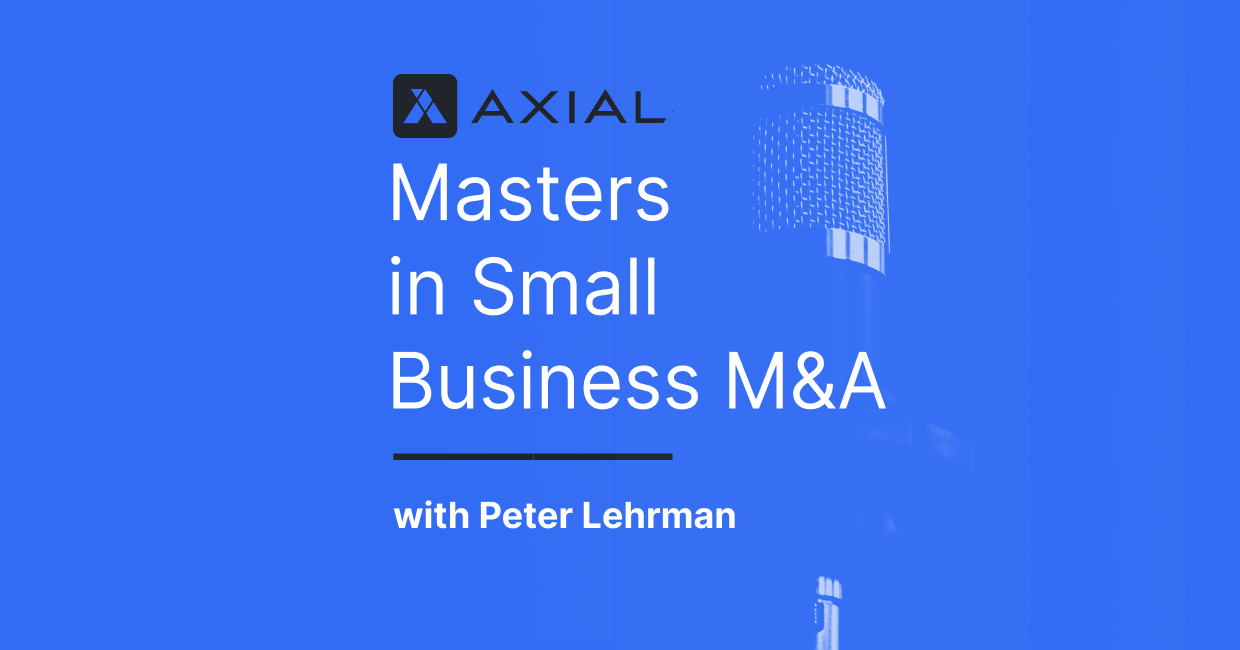
From Apollo & Viking to the Gritty Lower Middle Market. Building Tucker’s Farm with Kyle Tucker
On today’s episode, Kyle Tucker, founder of Tucker’s Farm Corporation, joins Peter Lehrman to share his journey from big league…
About two years ago London software guru Ben Rometsch was busy building Flagsmith – a developer of an open source feature flagging platform – when he started receiving calls from large organizations desiring his technology and venture capitalists eager to invest in his growing business.
Trouble is, said Rometsch, who co-founded the company, he wasn’t interested in raising money, and didn’t want to be “beholden” to investors to hit certain growth marks. Instead, Flagsmith really wanted a partner, a firm that could focus on sales and marketing – something out of the founders’ area of expertise – and in turn help grow the business given all of the interest from prospective large customers.
“There was a potential that it was going to pass us by because we didn’t know how to capture this opportunity,” he noted.
Then came Polychrome. Through a VC connection Rometsch was introduced to Polychrome Capital, a long-term investment firm focused on helping small but budding software companies grow their businesses through market outreach and strategic expertise. The chemistry between Rometsch and Polychrome’s founders was immediate via phone, and in September 2020 – during the midst of the pandemic – Rometsch and the Polychrome founders structured a 50-50 joint venture, before they even met in person.
“We set up the deal so we didn’t get that ownership stake until we had fulfilled our promise of growing the business,” said San Francisco-based Alex Boswell, a co-founder and partner at Polychrome. Initially, Polychrome offered Flagsmith 25% equity in exchange for a cash investment, and after Flagsmith hit a certain milestone, the other 25% equity was granted. Two years later, Flagsmith has grown by 20-times revenue, he noted.
Boswell and his fellow co-founders and partners, Matt Althauser and Greg Lazarus, launched Polychrome Capital in 2020. Each of them have deep roots in the software space: Prior to founding Polychrome, Boswell most recently held finance and operational roles at Twilio, a provider of communications tools; Althauser, based in Cologne, Germany, was previously a chief revenue officer and chief operating officer at data analytics company Amplitude, Inc.; and Chicago-based Lazarus was a chief revenue officer at Returnly, a software company catering to the e-commerce sector. Together, they pooled their experience in sales, team-building, and strategic marketing to design a holding company that offered this expertise to promising start-up entities.
Inspired by Berkshire Hathaway Inc., Constellation Software, and other conglomerates, Polychrome seeks to acquire or partner with small-but-profitable (or near profitable) software businesses for the long haul, Boswell said. These companies typically are focused on developer tools and/or open source platforms. Polychrome also looks for companies with $1 million to $5 million in enterprise value, and those with low churn. The partners are also drawn to small business owners who have integrity and who treat their customers well. “And we definitely want a founder strong on the technical side,” he added.
Polychrome’s deals are structured as joint ventures, as with Flagsmith, or Polychrome will take 100% ownership if the founders want to sell. “For the first 12 to18 months of investing in a company or buying a company, we will be very hands on to get the structure set, the foundation built, and then hire people into the right roles,” Boswell said. “That 12 to 18 months is a critical time for us to get things right.” Polychrome’s mission, he stated, is to help these emerging software companies reach the next level of growth and beyond. As noted by Polychrome’s website, the firm is “Your partner for the next phase of the journey”.
Since its launch three years ago, Polychrome has completed three deals: Flagsmith, its first; Browserlist, a web automation company, in June 2021; and most recently Checkbox, a provider of survey software, which the firm sourced via Axial. The Browserlist deal was structured as a 50-50 joint venture, much like Flagsmith. “The founder wanted to continue running it as a profitable business, but knew that he didn’t want to spend the time building a sales organization and figuring out all the marketing — so we came in,” Boswell said. And Polychrome acquired 100% of Checkbox in September 2022 as the owners wanted to sell.
The investment firm connects with software companies through referrals, outbound searches, and through brokers and networks such as Axial, Boswell said.
After the first year and a half and once Polychrome has fulfilled its duty to significantly grow each business, Polychrome’s founders gradually step back and bring in new hires to fill their shoes, all the while retaining full or partial ownership for the long term. That’s exactly what’s happening now at Flagsmith, as Polychrome is seeking a full-time salesperson in place of Lazarus, in addition to a recruiter to help fill upcoming roles.
“Within a few years we would like to get to the point where the profits from each of these companies is what’s driving the next acquisition and the next acquisition,” Boswell said. “Our goal is to acquire two to three companies a year for the foreseeable future for the next 10 years.” As of now, Polychrome has no plans to sell any of its businesses or to do tuck-in acquisitions, he noted.
Rometsch would most certainly provide a good reference to software entrepreneurs looking to partner with Polychrome or sell. He’s still running Flagsmith as CEO and doing what he loves best – software development and implementation – while his company grows thanks in large part to Polychrome’s sales and marketing efforts, he said.
“It’s been revolutionary,” Rometsch said of the last two years at Flagsmith. “The business is worth more than double what it would have been if I had done it myself. I have zero regrets in doing that deal.”
Notifications
